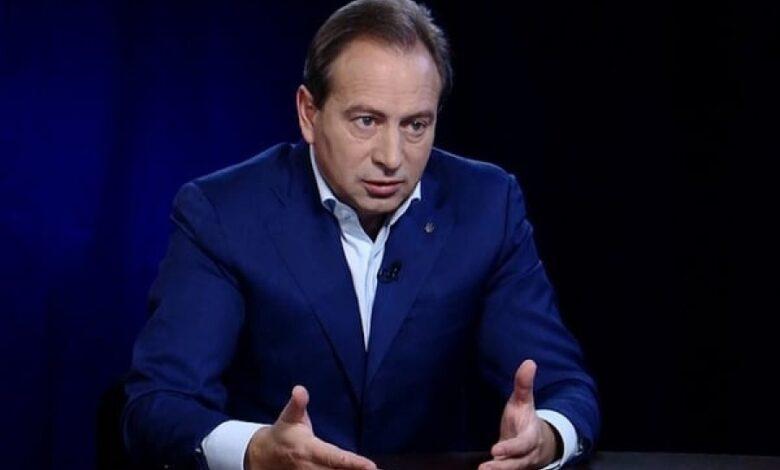“From now on, the professions of architect, doctor, lawyer and psychologist are a privilege only for the rich”: Mykola Tomenko

Every year, thousands of Ukrainian families experience the introductory campaign as a financial and psychological test. In a country that is at war and at the same time declares its desire for equality of opportunity, access to higher education increasingly depends not on knowledge and effort, but on the thickness of parents’ wallets. This especially applies to prestigious specialties — architecture, medicine, jurisprudence, psychology, public administration. These areas, despite their strategic importance for the future of the country, are effectively closed to children from poor families. According to ex-Deputy of National Affairs, ex-Deputy Prime Minister of Ukraine for Humanitarian Affairs, founder of the “Native Country” Foundation, Candidate of Historical Sciences, Doctor of Political Sciences, Professor Mykola Tomenko, the new government policy turns higher education into a privilege for the rich, opening a direct path to mass emigration of Ukrainian youth.
As notes Mykola Tomenko, despite loud declarations about the availability of education for every Ukrainian, the reality inexorably proves otherwise: getting a diploma of an architect, doctor, lawyer or psychologist in Ukraine increasingly means being born into a wealthy family. According to him, on the initiative of the Ministry of Education and Science, which he calls the “Ministry of Youth Emigration”, the Government adopted Resolution No. 417, which introduces strict pricing rules for the contract form of education in state universities. Therefore, higher education turns into a luxury that is unattainable for millions of Ukrainian families, especially from villages, frontline areas and poorer regions.
Mykola Tomenko emphasizes that the Government has introduced the mandatory indicative cost of education for higher education institutions, which actually sets the “threshold” of the minimum payment for the contract. For prestigious specialties, such as medicine, law, psychology, architecture, a factor of 1.25 has also been introduced, which automatically raises the cost of education even higher.
As Tomenko predicts, the cost of contract training in such specialties will almost double. He gives specific examples. Yes, in KPI named after Sikorsky’s bachelor’s year for “prestigious” specialties increased from UAH 41,100 to UAH 67,827.5, and the master’s – from UAH 53,100 to UAH 88,176.25. In LNU named after Franka, the price of a bachelor’s degree will increase from UAH 24,827 to UAH 43,418, and a master’s degree will increase from UAH 32,276 to UAH 56,443. At NUBiP, a bachelor’s degree will cost UAH 61,767.53 instead of UAH 28,741.45, and a master’s degree will cost more than UAH 80,000.
Tomenko is particularly indignant at the situation at the Taras Shevchenko National University, where the annual cost of a master’s degree in prestigious fields can reach over 100,000 hryvnias. He ironizes that, at the same time, private universities — in which officials “earn a lot of money in their free time from government” — are not subject to these restrictions and can independently determine the price. According to his assessment, the fee will be lower in private higher education institutions than in public ones, which creates preferences for “their own” and discrimination for the rest.
Tomenko considers the argument of officials that the “poor” can get into the budget if they make a good NMT to be particularly cynical. In response, he explains: firstly, the number of budget places in prestigious specialties has been significantly reduced. Secondly, the entrance barrier is so high — at least 150 points — that it is almost impossible for a graduate of a rural school or a student from the frontline zone to overcome it. Especially without tutors, a stable educational process and access to quality educational resources.
The consequences of this increase are obvious, Tomenko emphasizes. In the conditions when the number of budget places for Ukrainians increases in Europe (in particular in Poland, the Czech Republic, Germany, Slovakia, Hungary, Bulgaria), and the contract fee is determined by the universities themselves without government instructions, more and more graduates will choose to leave. According to him, maintaining the moratorium on social payments in combination with such new prices will make education in Ukraine unaffordable for thousands of families who are barely making ends meet.
Tomenko harshly criticizes Resolution No. 417 as contradicting the Constitution of Ukraine. He claims that “officials and dual citizens in power have wiped their feet on our laws.” He reminds that on May 1, the Council of Rectors appealed to the President with a demand to suspend the effect of the Resolution. The rectors also suggested creating a real working group for reforming higher education — with the involvement of the public, universities, and trade unions, and not behind the scenes and opaquely, as it is now.
Summing up, Tomenko ironizes those who get rich on “eternal education reforms” — grant-makers, officials and officials who do not see problems in the new tariffs. The expert quotes Lesya Ukrainka — “Contra spem spero!” — “I hope without hope.”
“Here I see long-term users of international funds for the “eternal reform of education” and recipients of budget millions in positions in the government and law enforcement agencies rushed to defend the INADEQUATE and UNTIMELY increase in tuition fees for students under contract. This is not surprising. Because if you, as the head of the staff of the Verkhovna Rada, received 300,000 hryvnias per month, what do you think of this unfortunate “measly” increase”, – notes Tomenko.




